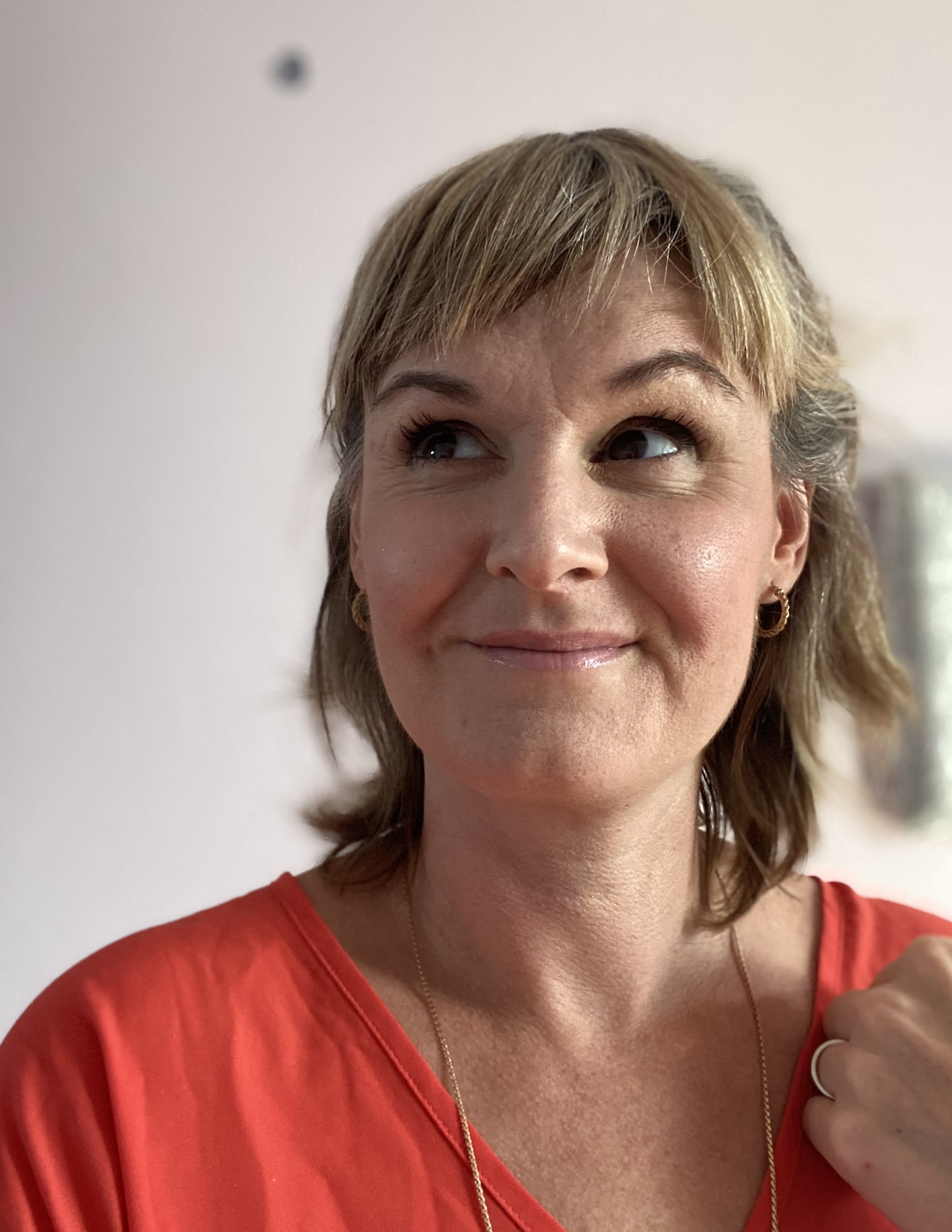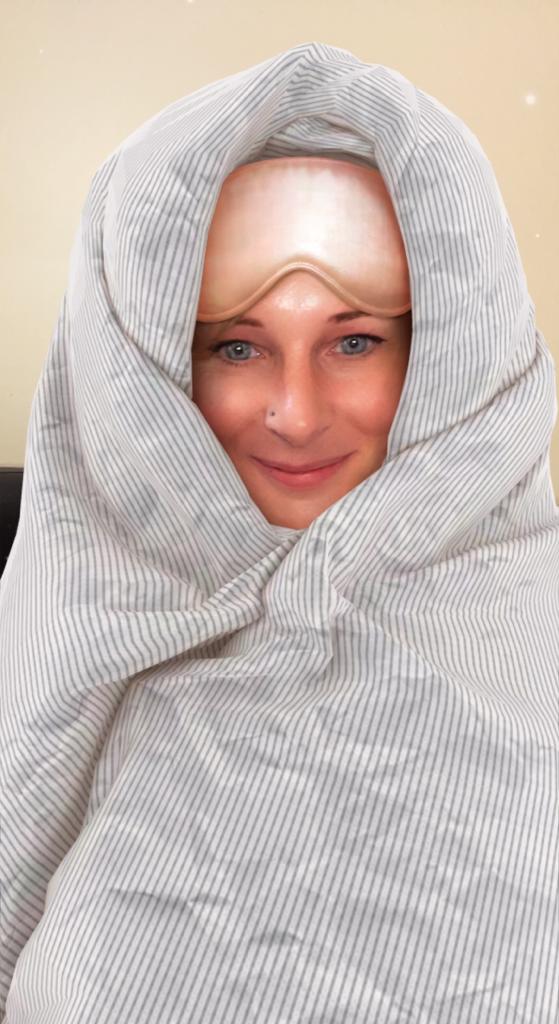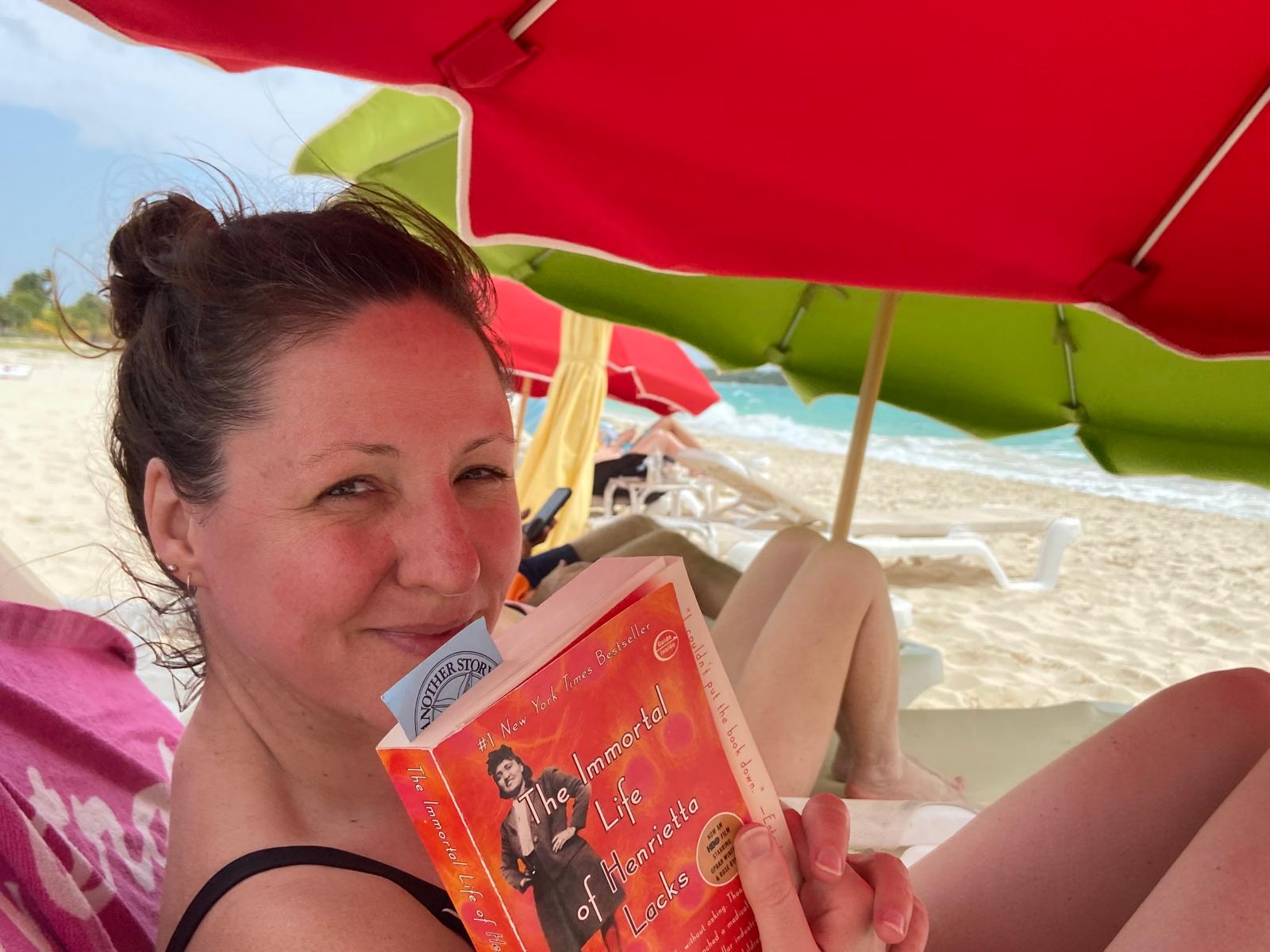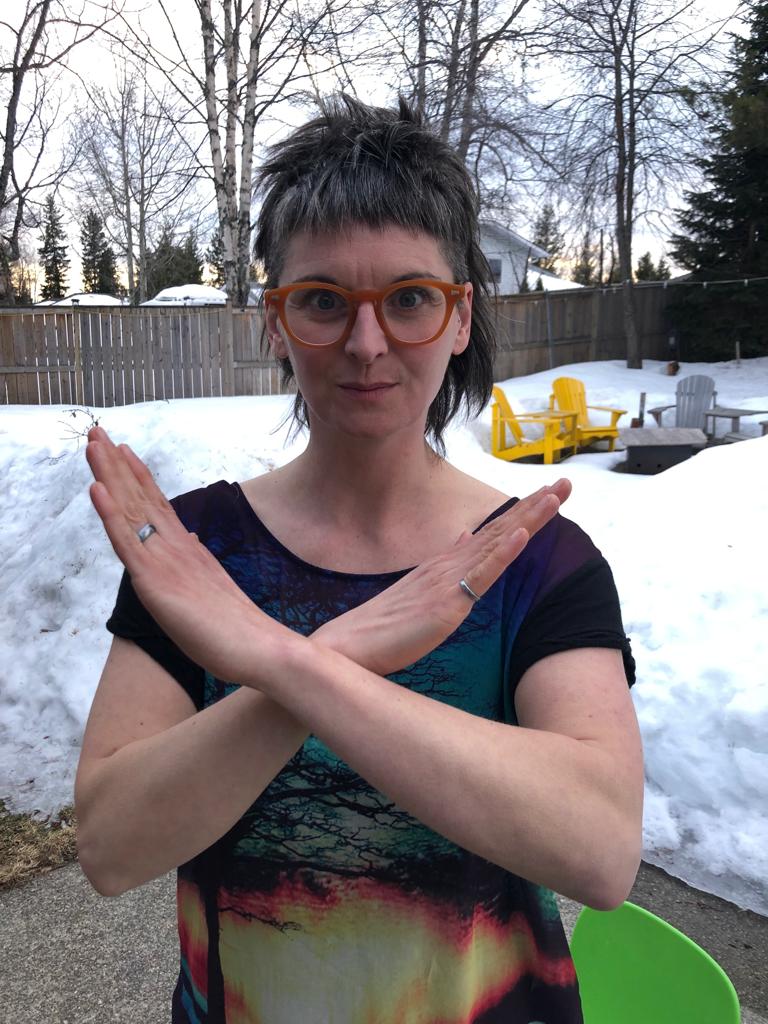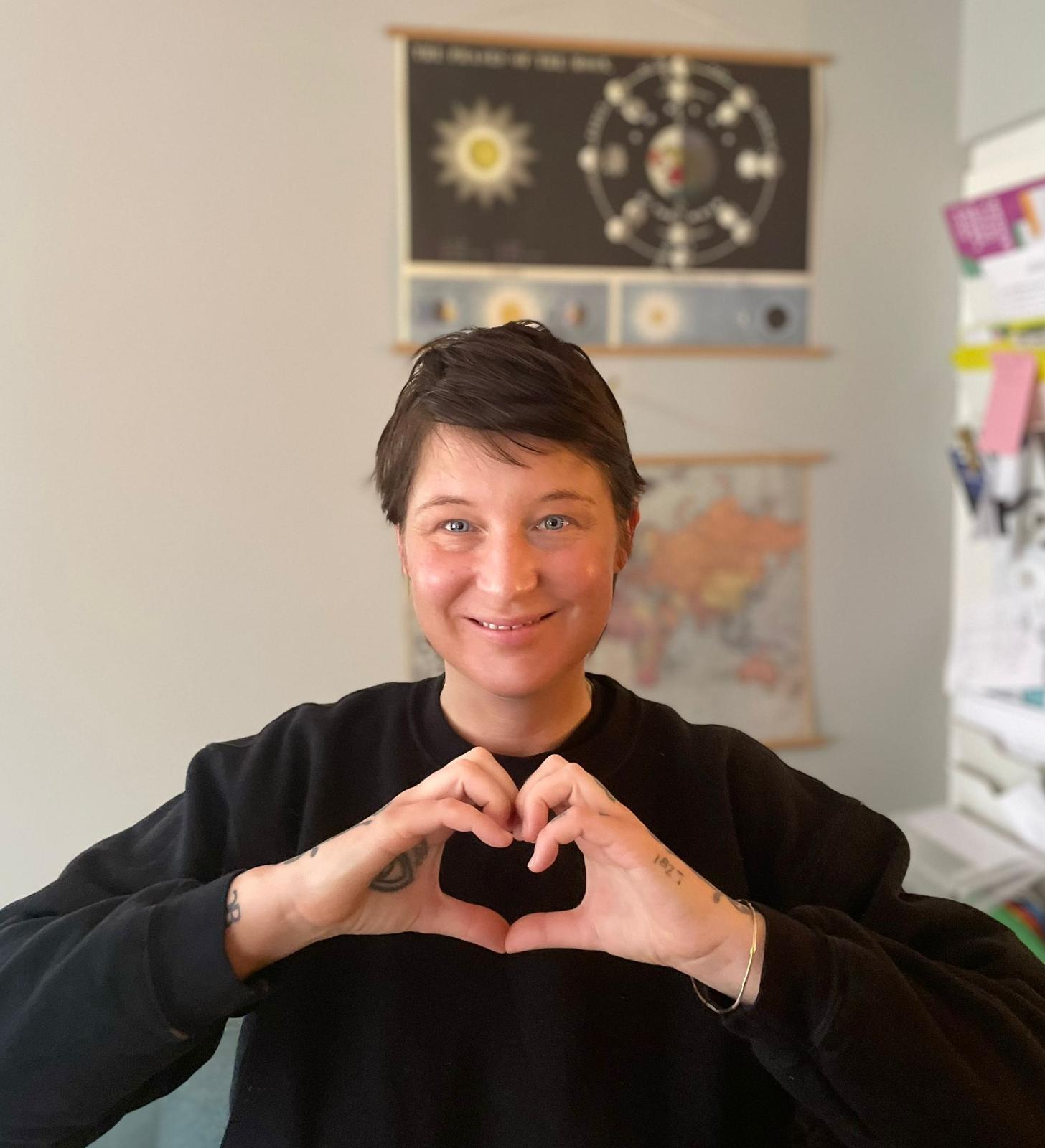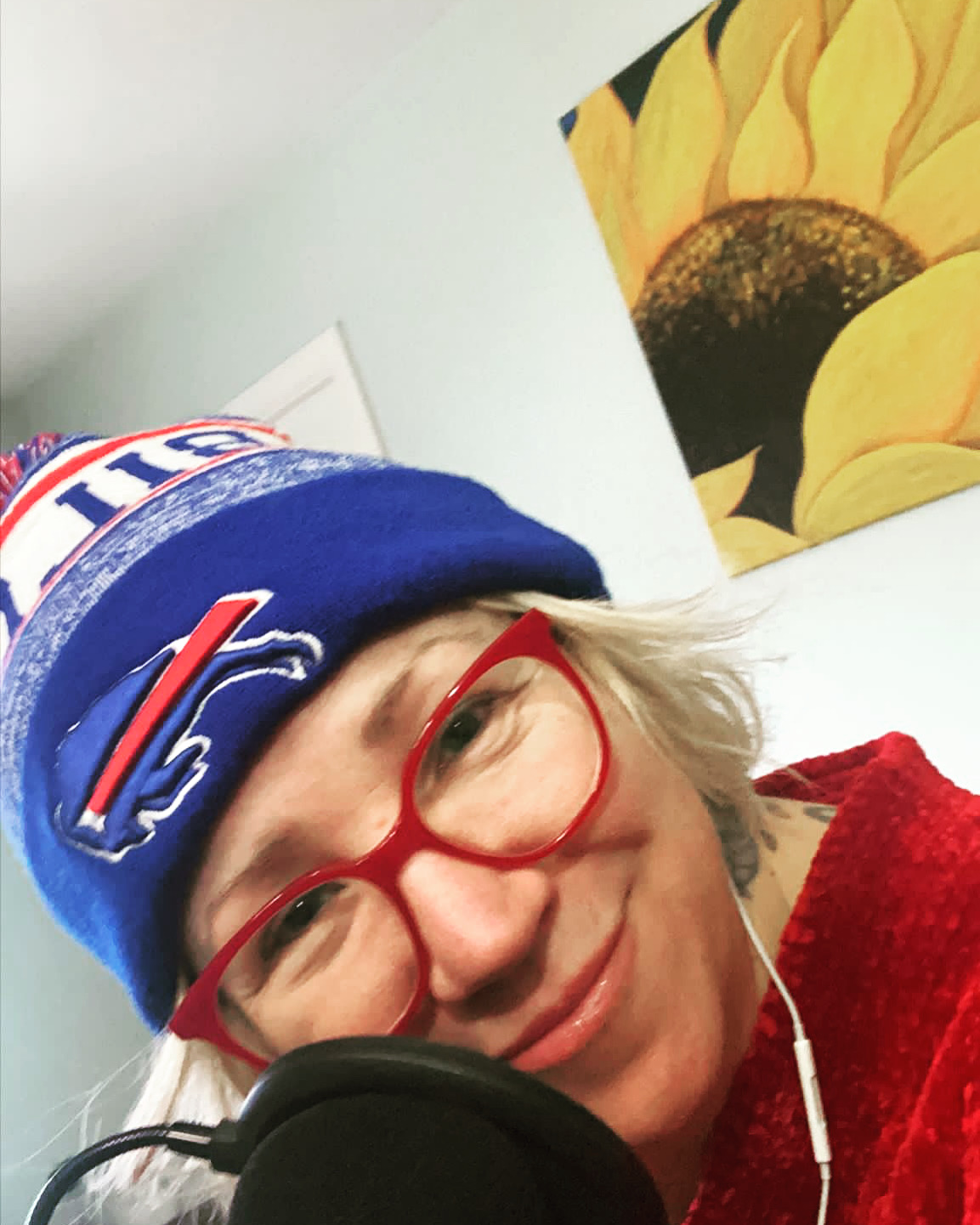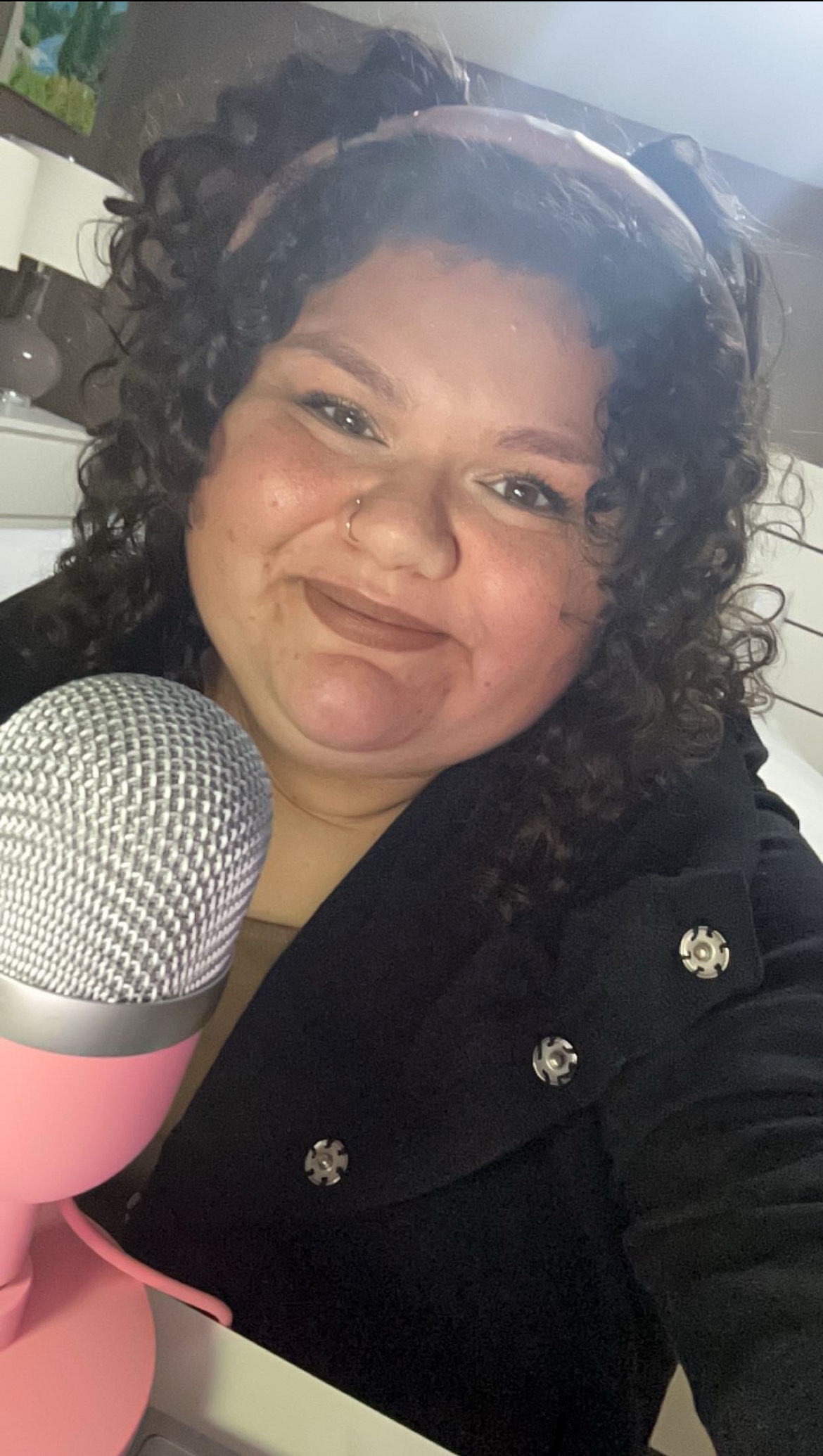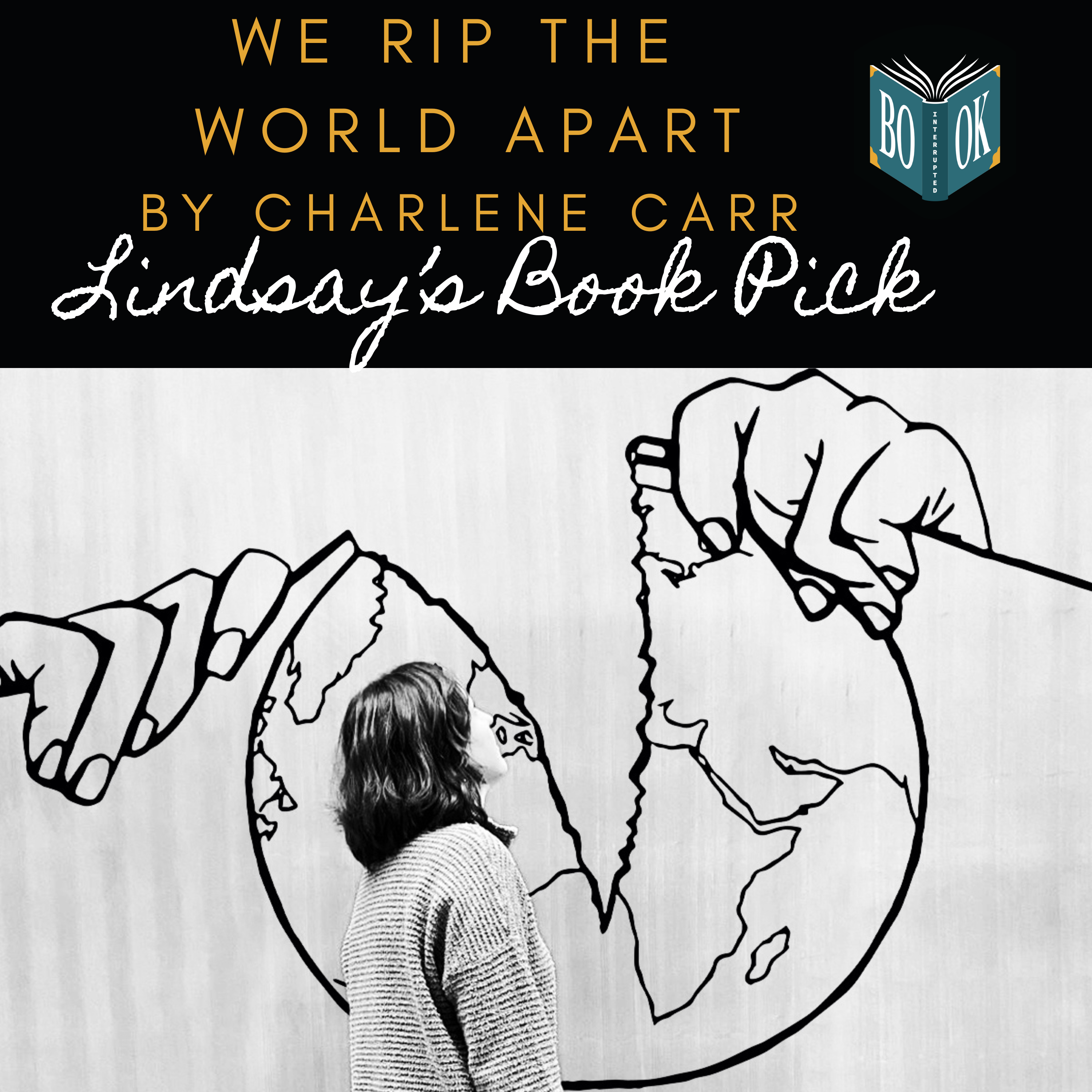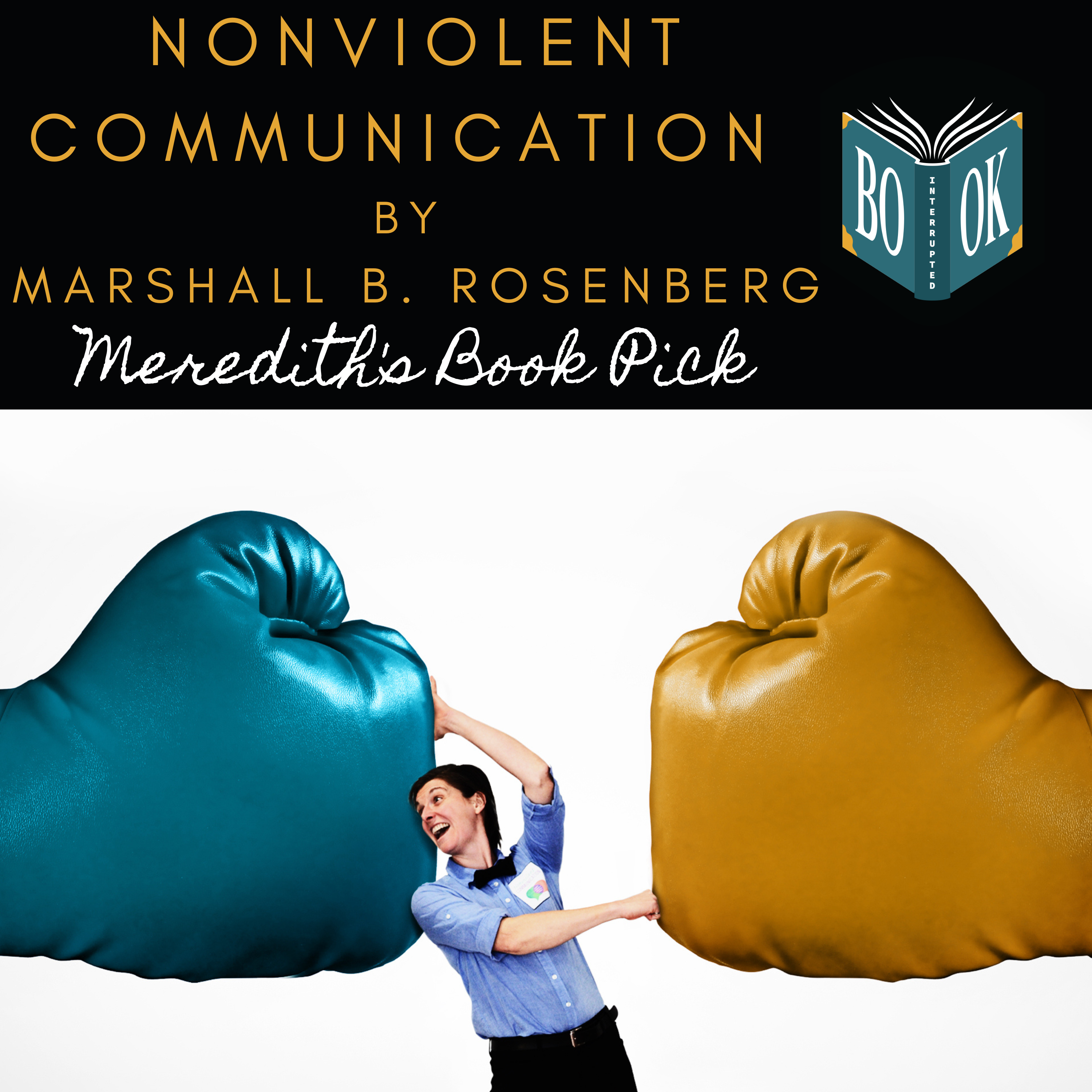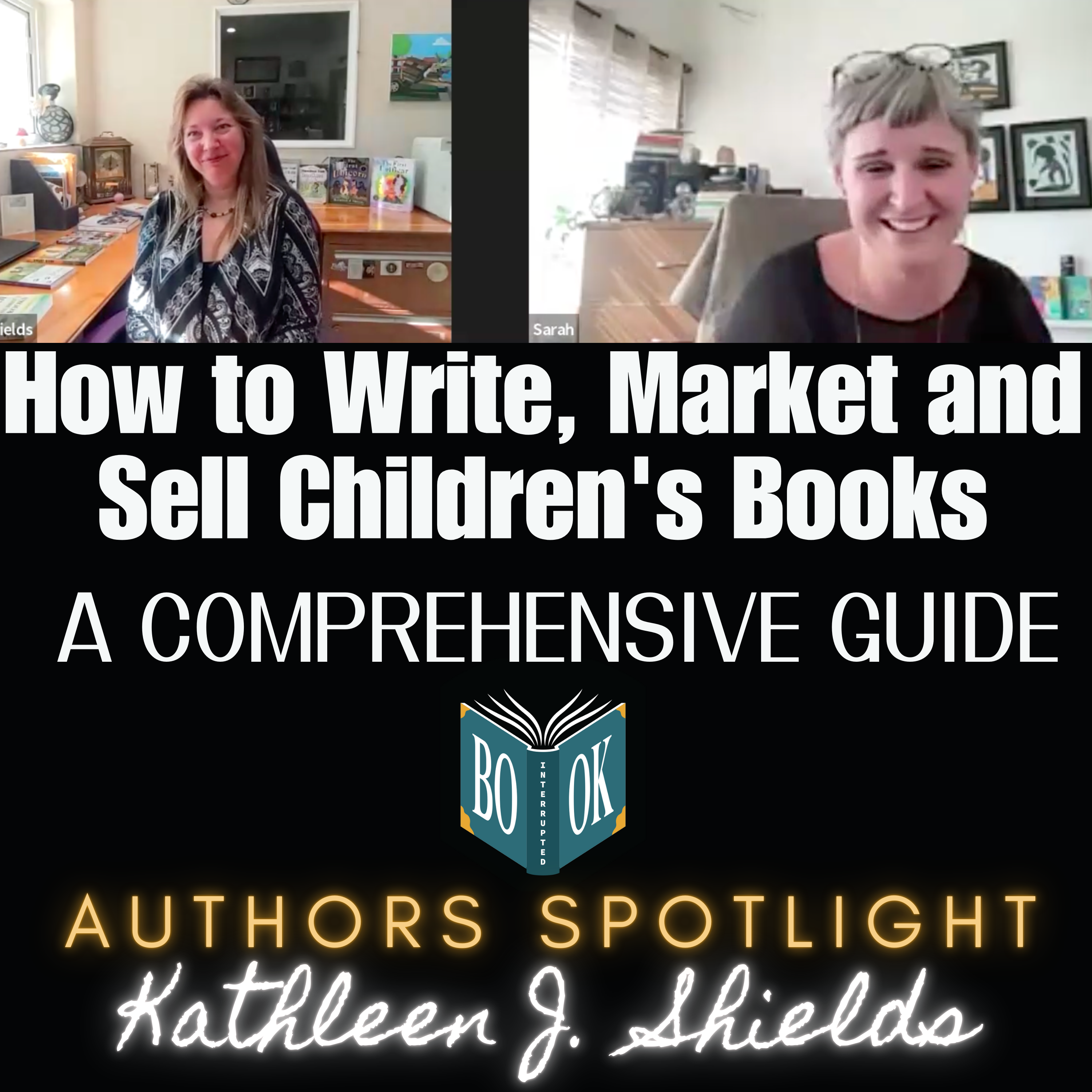[00:00:00] Speaker A: We want to hear what you think of this season's books. Comment on our socials or email us at Connect C O n N E c
[email protected] or please leave us a voicemail at 416-900-8603. We would love to hear from you.
[00:00:22] Speaker B: Parental guidance is recommended because this episode has mature topics and strong language.
Here are some moments you can look forward to during this episode of Book Interrupted. This book was way too close to home for me. Yeah, it was, like, really upsetting.
[00:00:39] Speaker C: That was really my, like, such a punch in the face when the police came and how dismissive they were.
[00:00:45] Speaker D: It's one of those books where you're like, you want the happy ending. But I think the point of the book is, is if you want the happy ending, then everyone's got to fight for that because it's not here yet.
[00:00:55] Speaker A: Are guys that insightful?
No, I don't. All men. But like, okay, that was a generalization.
[00:01:02] Speaker C: Yeah, Lindsay.
[00:01:03] Speaker B: I would go full Henrietta from the change. I would like, I would be like, I'm gonna raise my kids until they're older and then those police officers are getting justice.
[00:01:13] Speaker D: Oh, we're so polite up here and we treat everyone the same. But that's just not true.
[00:01:18] Speaker C: They, as a daughter, mother, were healing. That's what made it feel good.
[00:01:24] Speaker A: It's not all sad. A lot of it's sad, but it is, I think, ultimately in the end, about love without being disrupted.
[00:01:53] Speaker C: Mind, body and soul.
[00:01:56] Speaker A: Inspiration is with us, and we're going to talk it out on Book Interrupted.
[00:02:04] Speaker B: Welcome to Book Interrupted, a book club for busy people to connect and one that celebrates life's interruptions.
During this book cycle, we're reading Lindsay's book pick We Rip the World Apart by Charlene Carr. In the aftermath of Karila's brother's murder by the police, her grandmother moves in, offering her a link to the Jamaican heritage she has never fully known. Despite her efforts to help them through their grief, the traumas they carry grow into a web of secrets that threaten the very family they all hold so dear. Carilla, prompted by the uncertainty about the new life she carries, must come to terms with the mystery surrounding her family's past and the need to make sense of both her identity and her future. Let's listen in to this episode's group discussion.
[00:02:52] Speaker A: Hi, everybody. This is my book this year, which hopefully everyone likes better than my book last year. So this is We Rip the World Apart by Charlene Carr. She is a Canadian writer. She lives in Nova Scotia with her husband and daughter. And she's received grants from Arts Nova Scotia, the Canada Council for the Arts and she's written quite a few other books. This is her 11th novel.
I thought it was a, you know, great to support Canadian also. Just so everybody knows, this won't come out now, but it is. What's the day, May 25, which is the five year anniversary on today of George Floyd's death, which seems pertinent because it is referred to in this book. And if people don't know who George Floyd is in the States, he's a black man who. A white police officer killed him on this day in 2020 by putting, I think it was his knee on his neck. And it was videoed for I think almost nine minutes, I believe was the time. And people were saying, you know, know you're going to kill him, you're going to kill him. And he did kill him. He was sentenced for, I don't quote.
[00:04:12] Speaker B: Me, but 20 years.
[00:04:13] Speaker A: For 20 years. Was it 20 years? Yeah, for 20 years. I just read an article today about how there is. I don't know if we wanted to get into politics on here, but there is at least one conservative politician in the states who is trying to get the police officer pardoned.
So anyways, I think it's just important to, you know, acknowledge that it's the five year anniversary and this does touch on that.
[00:04:38] Speaker C: I do want to add that George Floyd also between 11 to 15 times told the officer that he could not breathe during this nine.
Yes, during this nine minute period. So that was a big thing to say during the Black Lives Matter movement was I can't breathe. And that's where that comes from.
[00:04:58] Speaker D: Yeah.
[00:04:59] Speaker B: Thank you.
[00:04:59] Speaker A: So.
[00:04:59] Speaker D: Yeah.
[00:05:00] Speaker A: And then this book, I mean this book touches on that. It touches on grief and family and like a lot of different topics that I think resonate with a lot of people. So what'd you guys think or what? Who wants to talk about something first? Because I just talked a lot.
[00:05:18] Speaker D: Okay.
[00:05:18] Speaker A: I can talk first. Okay.
[00:05:20] Speaker B: This book was way too close to home for me. Yeah, I was like really upsetting because I have biracial children and oh, I.
[00:05:31] Speaker D: Did my personal journal.
[00:05:31] Speaker A: Fine.
[00:05:32] Speaker B: But now that I'm talking, I cried a lot. Let's just not.
[00:05:35] Speaker D: Yeah.
[00:05:35] Speaker B: I didn't think that my son could just be. Because he was peacefully protesting or it's like terrifying if he was in Canada to drive a car.
Being afraid that your son to drive because that how he's going to be treated. And my boy is Such a sweet little boy.
[00:05:51] Speaker C: Like, it was just way too close for me.
[00:05:53] Speaker B: This book, also things you don't realize is when me and my husband first. We were driving somewhere when we first got together, and police officer followed us while driving ridiculously long, like, harassing amount of time. And I was like. And I kept on turning, thinking, like, well, trying to get away and being conscious. Like, I can't make one mistake or he will pull me over. He's just waiting to pull us over because my husband was in the car with me. Or one time my husband went to the gym and he didn't bring his id.
And on the way back from the gym, they pulled him into a police car and they're like, where's your id? He was like, I was at the gym. I walked to the gym. And then they, like, drove him in a cruiser home so he could get his id because he looked like someone that was suspicious.
It's really.
[00:06:45] Speaker D: I was saying in my personal journal.
[00:06:47] Speaker B: I try to, like, think that, like, it's after the George Foreman thing.
[00:06:51] Speaker C: George.
[00:06:51] Speaker D: No, George Foreman does that grill.
Yeah.
[00:06:59] Speaker C: Just grilling up some birds.
[00:07:04] Speaker D: I was saying to my husband, my.
[00:07:06] Speaker B: Children will never go to the U.S. never.
Like, over my dead body.
Sometimes, you know, people talk about kids going to university. And I was like, my husband's like, oh, there's some good ones that maybe they'll get to one in the States. I'm never, never ever would I have my child go to the States. Terrifying for me. Terrifying.
[00:07:23] Speaker C: I think that's a real point.
[00:07:25] Speaker A: And this happens in Canada like this.
[00:07:27] Speaker D: I think this is part of the point of the book is that I know as Canadians, we look at the States and we go, well, it's not like that here. But the part of the point of the book is that, yeah, Canada has problems. We do have problems here. And some of this stuff is here. And we look at the States and go, well, we're not like that. And it's like, well, I mean, who do you want to compare yourself to? Like, until things are equal and everyone's treated the same, then, you know, we're not like, oh, we're so polite up here, and we treat everyone the same. But that's just not true.
[00:07:58] Speaker B: It's not in the book.
[00:08:00] Speaker A: Just so if people have not read it, the story is that a white woman goes to Jamaica. She meets a black man, Jamaican, and. And they get married and they have a kid. They're in Kingston. There is. I don't think. I don't know if it's A war, but there's. People are being killed.
They come back and they come to Toronto. She ends up getting pregnant. I think they have an 18 year, a very long difference. The son has grown up, like maybe in his 20s, I think at this time, I think it's around 2005 or so. The daughter is fairly young, and the son goes out and protests and speaks at a protest. Then he goes to pack up the van or something, and he's with other people and the police come and everybody else gets to the ground and the son says, you don't have a right to search our van. And he gets shot four times and is murdered. And it's the story of the family.
It's kind of the story of the mother and her back then and her grieving and figuring things out, and then the daughter, when she's older, kind of figuring herself out. And there's other things that happen that I don't know if we want to give away about pregnancy and stuff, but. And about how no matter what it seems like a few of them try to step up to say, like, we need to change this. And they're being shot down by police are coming and threatening them.
Something really dramatic happens at the end that's horrifying. That's kind of the story of the book. And I think it's also about love and their family and grieving. And there's a lot of stuff in there that's. It's not all sad. A lot of it's sad, but it is, I think, ultimately in the end.
[00:09:44] Speaker D: About love in my mind, and, like, how the different members of the family deal with how things are. Are you going to fight against injustice or are you going to try to be your best self and hope that you're recognized for being the best, do it that way. And the struggles, you know, all those things, like how it's always front of mind, the race thing is always front of mind for lots of interactions they have with other people, whether they're friends or work colleagues or strangers or anything, and how it kind of is inherent in their lives as well.
[00:10:19] Speaker C: And I do want to mention that which this still happens so commonly is that when the son is murdered earlier on in like a 2005, his murder is really swept under the rug and no one has any details about it. Even later on, when they do kind of get some details, they even talk about how they really tried to downplay the police involvement and why he was shot and try and blame it on him.
And speaking of George Floyd, like, that's exactly what was happening. And it was really disheartening to read it because as, like, someone who's indigenous. I know. And I'm. I'm white passing. So growing up, I was not scared of the police. I always viewed them as, they're going to come and they're going to fix the problem, and that's that. And when I started leaning more into my culture and making friends with people of color, I didn't understand why they didn't want to call the police. There were a few instances where we had to call the police. My one friend had a panic attack, and they were like, you need to be here, please. Like, they're not going to believe me. I was really rude. I was like, what are you talking about? They're going to come here, they're going to take your statement, they're going to investigate this, and it's going to get figured out. That was really my, like, such a punch in the face when the police came and how dismissive they were. And that's when I really started to kind of change that shift in my mind that maybe they aren't here to protect people. They're here kind of for. I don't want to say like, a white supremacist type of society, but that really is a lot of what the police are fighting for. And I think I'm just kind of rambling on, but it really was, like, so hard to read parts of this book. I could only read a chapter or two at a time. I was getting. Getting so mad, not so much at the storytelling, but so mad at the society. To read that we're still in the same society and this is happening and it happens to so many people, and things are not changing, and they're not changing quick enough, and people are still dying because of this. And just how much hate people have. I don't understand it. It's just a hard read, emotionally, I think.
[00:12:46] Speaker B: I agree. It was really hard.
[00:12:48] Speaker A: Yeah. Sorry, Sarah. I didn't actually know. My mom gave me this book, and she said, it's really. It's an important book. And, you know, really think about being in, you know, Toronto and how this stuff's happening and whatever. And then I read it, and I was like, oh, this is gonna be really hard for Sarah.
Being basically, like, telling the story of a white woman with a black man and three kids. Well, you have three. She has two.
[00:13:11] Speaker B: I related to Evelyn a lot, let's just say that. A lot. Like, even her, when she went to Jamaica, and she's like, Finally, I feel safe. I love it here. That's how I felt with Senegal. Like, I just kept on thinking in the book, like, go back to Jamaica. Just go back to Jamaica. And I don't know why they went to Nova Scotia. Like, all of it. I'm like, no one's handling it.
[00:13:31] Speaker A: But they. It was dangerous. That's why.
[00:13:33] Speaker B: But not. Not after her son died, though. They left at that time because there was a civil war.
But also her. His sister got murdered during that war. Like, it's hard. I still would have gone back.
[00:13:45] Speaker D: Right. There's a lot of pain there as well. Right. Because they lost so many people and. And they kept on trying to make it and just like, I'll just work harder. Just work harder.
[00:13:55] Speaker C: And it's kind of the dream they're sold is you come to North America and you're gonna work hard and live the American dream. And I know this is based in Canada, but really, even, you know, freedom of speech, we're so free here. And so I think a lot of people from other countries hear that, and they see that we have such a multicultural society that they believe that. And then they come here and they get these microaggressions. They deal with racism and maybe not so blatant ways, but even when they move to the smaller town, yes, they're away from that violence.
But then her daughter is being spit on and being called atrocious words.
And she's like, you said it was supposed to be safe here, and she wasn't safe. Maybe she was safe in a physical sense, but not emotionally, not socially. And that's just as important as having physical safety.
[00:14:52] Speaker A: What do you think of.
I wish that the character of the grandma. What's her name? Violet. Yeah, Violet. It was Violet. I wish that she was more full as a character. I don't know if you felt that.
[00:15:07] Speaker C: She wasn't as developed.
[00:15:09] Speaker A: Yeah, Developed like. I feel like she wasn't as developed. And I think there's stuffed up about the book. I didn't like the ending very much, and I. I think that there's stuff about the book, like, it's such an important but story to talk about in. In the other way. But I think the book itself. I didn't necessarily love the Evelyn character at the end either. I know she was trying and like. But the way that she handled it obviously must have been horrific for that mother to go through all those things. But at the same time, I wish she just grabbed her daughter, you know, given her the thing that the daughter needed.
[00:15:43] Speaker C: So it was interesting to hear them hear the mother talk about how she had to check out for herself. She had to distance herself because she felt she couldn't allow herself to love someone so much to potentially lose them. And I'm not a mother myself, but I had a really strained relationship with my mom just through intergenerational trauma, addiction, etc. And one thing my aunt, so my mom's sister always told me is like your mom, she loves you so much, but she has gone through so much too. And being a kid, that's so hard to hear, right? You're like, okay, cool. I'm going through stuff now because of her.
So there are some days where I want to check out and I can because I don't have anyone to take care of. I don't have anyone that needs me to live. I can't imagine how hard that is for a caretaker or a guardian to have horrible things happen or really emotional things happen and to still have to pick yourself up and give to other people. So that was really eye openening to read through the mother's perspective as well as the daughters because I felt related to the daughter. But I'm sure if my mom read this, she would relate to the mom. So I liked both the stories. It's so complicated, but I think it told both sides well.
[00:17:04] Speaker B: Yeah, I think so too. Like, I think that Evelyn had just been through so much. Her father was abusive, her mom ended up checking out because he was so abusive. Everyone turned a blind eye to that. Then she moves to Jamaica, finally finds her peace and then her sister in law gets murdered. They have to leave because an intruder. And then she comes back. Then her son is murdered and then by the police. The police threaten her. She can't get justice even though her best friends are husband's, a lawyer, no one will help her.
Then she finally feels like things are going to turn around and then she's, I'm just going to spoil it. Then she's sexually abused because you know, like, it's just like I can understand her being like, I just keep on trying. I keep on pulling herself, her husband out of his funk. Like she's like, I'm just going to keep on trying. And then she was just like, now I'm done, I'm not going to try anymore. I give up. But this book made me go to.
[00:17:57] Speaker C: A really dark place.
[00:17:58] Speaker B: So by the time Evelyn, even before she got abused, I was like, I would hear Henrietta that those police officers, I would go full Henrietta from the change. I was like, I Would be like, I'm gonna raise my kids until they're older. And then those police officers are getting justice. And I don't care if I go.
[00:18:16] Speaker D: To jail, but there's.
[00:18:18] Speaker B: I'm gonna spend my time studying herbs and I'm gonna take them out. They're gonna die.
[00:18:24] Speaker C: One day.
[00:18:24] Speaker B: They're going to die.
And eye for eye, I went crazy dark places, because there is no justice for them. They'll never be justice for them. So I went really into really dark.
[00:18:36] Speaker D: Places where I'm like.
[00:18:38] Speaker B: I would go opposite. I would check out because I'm planning my revenge. It could be for 10 years, I would just be like, every day planning my revenge.
[00:18:46] Speaker D: And the reason that, like. I mean, the reason. But it just, like, sucks that she.
She was trying to, like, protect her children from the world. I mean, from Canada, I guess, from everybody else here, or violence back in Jamaica, everything. And then she finally like her. You know, her daughter was like, I remember my mom stood up for me and it was such a powerful thing for the daughter. That was the kind of the thing that was the chain reaction that made these guys.
I don't say made these guys do those things, but they were reacting to that because it was about power, you know, I mean, like, she stood up for her daughter. Daughter was so proud and was like. Saw this woman that she finally maybe found her voice in this small town and she's protecting her daughter and she's turning things around. And just like those pieces of shit, they just. Why can't they just let other people live? Because I don't know, it's just so upsetting because she did as much as she could. And I think Violet dealt with loss and pain differently. And that her advice to her, how that affected the relationship, like, she's tried to do her best because Violet lost so many children and had so much loss in her life too. And she dealt with it differently because she's a different person. Right. It's one of those books where you're like, you want the happy ending. But I think the point of the book is, is if you want the happy ending, then everyone's gotta fight for that, because it's not here yet. The son was fighting for it and he got murdered. And then the family tried to lay low and they still were the victims of violence. And then, you know, the daughter had to try to come to terms with whether she should fight her or be quiet. And it's one of those books that's not going to have a happy ending in the book. But I think that's the point of the book, is that you read it. And if we really do really want the good ending more, people have to be aware that this kind of stuff happens and something's got to change.
[00:20:43] Speaker A: I don't think it was a sad ending, though.
[00:20:46] Speaker D: They survived in their way, and maybe things did get a little bit better. The truth, though, like, all the hiding did make things worse. So it was nice that some truth came out and they finally opened up instead of trying to protect people by keeping them in the dark, you know, like, that doesn't help.
[00:21:03] Speaker B: They're healing. I agree. The end of the book was like, everyone is actually healing.
So that was positive.
[00:21:10] Speaker C: That's a good point, Sarah. The healing, for sure, that's. I mean, I guess it was happy in a. In a way, but I think what made it feel like a happy ending for me was that they were healing. After all of that, obviously things are still happening. Society things may happen to them, her potential child, but they, as a daughter, mother, were healing.
That's what made it feel good. I think that's what, like.
[00:21:37] Speaker B: And with the grandmother.
[00:21:38] Speaker C: Yeah, right. Yeah. I really liked that part of it that after reading so much emotional turmoil through it, that felt nice to wrap.
[00:21:49] Speaker D: Up like that, maybe like Hope for the Next Generation.
[00:21:52] Speaker A: I wish that ending was a bit more drawn out, though. I found that's why I didn't like about the ending. I felt like it was all this detail, and then it was like, and then this happened, and this happened and this happened, and let me wrap everything up in a little bow and put it at the end. But I guess that added the hope at the end that was needed.
[00:22:07] Speaker D: So again, please end with hope, because this book, I need.
[00:22:11] Speaker B: I needed hope.
[00:22:12] Speaker C: It did end quickly, though. Like, it. I felt like it was just like a page. I listened to it, so I don't know how if it was a page or not, but it felt very quick how it ended. So. I agree, Lindsay. It could have been longer, I think, for the ending.
[00:22:27] Speaker A: Yeah. Just like I wanted to hear about her speaking at the rally. I wanted to hear a little bit more details about, you know, them working on that relationship between the mother and the daughter and the grandmother and the healing between all of that and the. I don't know, I just felt like it was like. And done. You were like, oh, okay.
[00:22:46] Speaker D: Was anybody else super annoyed with how the boyfriend was just dogging her all the time, making appointments, and she's just like, I don't know, leave me alone. And just does. Was anybody Else being like, hey, ease up, mister.
[00:23:01] Speaker A: He's like, just have the baby for me, and then you can just give it to me and you can.
[00:23:05] Speaker D: I'll take care of it. You're like, I'm going to carry this baby and then have the baby. And then what? Never see it ever.
[00:23:11] Speaker C: You're like, also to go through the body changes, pregnancy in general. Like, she could go through postpartum, and that would be, like, the least of her worries from pregnancy.
[00:23:21] Speaker D: A lot. You're like, what?
A lot does not cover it, my friend.
[00:23:25] Speaker B: I like how the doctor, though, I'm glad that they put in the book, because at first she was like, this doctor's gonna judge me. And then after the doctor made him leave, and then she was like, are you an abusive relationship? And she was like, what?
[00:23:37] Speaker C: No.
[00:23:37] Speaker B: And are you sure? No. It can be subtle. Yeah, this can be subtle because he seems like he's pressuring you. And she's like, no, no, no. But at least it made her think differently.
[00:23:47] Speaker D: Being like, well, he is pressuring me.
[00:23:50] Speaker A: Right?
[00:23:50] Speaker B: Like, and that's where she left. She's like, well, he is actually pressuring me, so what do I actually want?
[00:23:56] Speaker C: Also, people in her life were saying, he's such a good guy. You're so lucky that you have a guy who wants this child. Wants you. Like, that's kind of the dream, right? Is you find a nice guy, you get pregnant. They really are excited for it. They want it, too. But it was absolutely pressuring her and not taking into consideration the changes that women go through during pregnancy. That is a complete whole body change. That's a mental change. And then to also just be like, also, if you don't want it, give up your child and I'll take it. That doesn't come with no consequences.
[00:24:36] Speaker A: Right.
[00:24:37] Speaker D: I think it also, like, I mean, he was being really pushy, and I was so annoyed with him. I was like, leave with this guy. But it really helped with her. At the same time, she's realizing how much masking she was practicing in her life. Was she ever being her genuine self with whoever? Right. Like, am I being anyone? This person, Anybody? And not just because she's a biracial woman, either hanging out with her black friends or her white friends and kind of feeling in between there. And for different reasons, or because her brother was murdered and there was expectations about trying to hold the family together at a very young age and pretending like things were okay. She wanted her parents to be okay, so be all that trauma. Also, like, had another layer of Masking that. I think also like you're saying at the end where she's healing, she's trying to figure out how to unmask and relearn that relationship. And it was hard, right, because she kind of took on the role of caretaker of her parents feelings just to survive. So it was interesting that they made the boyfriend like that in a way because he really helped her. Being like, who am I anyway? He. He drove me. His pushiness was like. I was surprised that she didn't just leave right away. I was like, get out of there.
[00:25:53] Speaker C: The whole time. I was like, get out of there.
[00:25:55] Speaker D: He's not helping.
[00:25:56] Speaker A: But yeah, but if you love someone, right.
[00:25:59] Speaker D: That's part of the character development though. She's trying to figure out, like, wait a minute, why am I here and what do I actually really want and do I want him or do I not? I mean, it was nice that it raised that question because he's choosing the baby and does he really actually want me or not?
[00:26:14] Speaker B: You know, I think though, also she came to the conclusion that like, he thought they were going to get married and stuff because she had learned from her experiences with Anthony's death that she just needed to blend and not stand out. So she was just going with the flow and kind of people pleasing through the whole relationship. And this guy thought she wanted to get married and have a family and do all those things. And then when it happened, he was like, what do you mean? You're not happy about it? And we're not getting married and having. We're going to get here anyway. And she was like, I don't actually know. I was just going through the motions.
[00:26:53] Speaker D: Yeah, I don't know what I want.
[00:26:54] Speaker B: I'm just glad you chose me. I don't even know who I am.
[00:26:58] Speaker C: Right.
[00:26:58] Speaker D: Yeah. I don't know how to tell what my needs are or my wants are. I just want to not feel in danger.
[00:27:07] Speaker B: Baby was the catalyst for all the healing of everyone, all three generations. Because she's like, I need to figure this out. So I need information and I need to know who I am. Because she was. She had a timeline. She had to do it. She had to figure it out.
[00:27:21] Speaker D: I love that her friends totally figured it out right away. They're like, we know. She's like, what?
She's like, it's very obvious.
[00:27:28] Speaker C: Your body is changing, so. And you're not drinking.
[00:27:32] Speaker D: Let's talk about it. Her. I liked her friend a lot. Her friend was a very good friend. I don't judge. Let's Talk about this. Right.
[00:27:39] Speaker C: I do like that you guys brought up how she felt like she was masking, especially to her partner, because that was something I wanted to ask you guys. Do you think he actually loved her or. Or do you think he loved the masking because her friend kind of saw through the bullshit? Do you think the boyfriend kind of saw through that, too and really loved who she was? Or was he just in love with this masking that she put on?
[00:28:06] Speaker A: Are guys that insightful? Not. No, I don't mean all men, but like. Okay, that was a generalization. We're.
[00:28:13] Speaker C: Yeah, Lindsay, we're going to get.
[00:28:14] Speaker A: But like, no, but if you show a certain personality or maybe some women, like, if you show a certain personality all the time.
If I knew you and you were always one way, I wouldn't think to be like, oh, is that just a mask? And they're really somebody else if you're always showing the same. So I do think he really loved her for who he thought she was. Whether. I don't think he wanted her to be a certain way. Like, I feel like the character really loved her for.
[00:28:41] Speaker C: Yeah.
[00:28:41] Speaker A: What she showed him.
[00:28:42] Speaker C: The portrayal she showed.
[00:28:45] Speaker A: Yes.
[00:28:45] Speaker D: And I don't think the betrayal when you're masking, it's not 100%.
Not you either. I think there's parts of you in there. It's nice that at the end she's like, I mean, we're just spoiling the whole book. So. But whatever, it's worth reading anyway.
[00:29:00] Speaker B: I think we always do that.
[00:29:02] Speaker D: He's like, what's this is coming out of the blue? And she's still trying to figure it out. So that. It's nice that she's like, I need to figure this out. But that he cared for enough. Maybe he will. He will like the true self. But how would they ever go back to relationship where she figures out who she is and he's who he always has been. I don't know.
[00:29:19] Speaker C: You know, it's like dating someone new almost.
[00:29:22] Speaker D: You'd easily fall back into masking is what I'm saying.
[00:29:27] Speaker B: I think their conflicts really started when she invited him out with her other friends and she has a different mask on.
And then she was like, I don't want him with my friends over here because I'm a different person. I'm wearing a different mask here, and I'm wearing a different mask with him. Right. Her friend was like. Basically said, if you stay with this guy, like that's a choice. Basically, you're choosing that mask. You need to Decide who you are. If that's who you are, that's the mask you're choosing. You know what I mean? Like, she was kind of laying it out. We love you no matter what, but he needs to be able to see you, or you're only going to go with his friends.
You're going to be that.
[00:30:02] Speaker C: And that's such an important topic that I think a lot of biracial people experience is, like, for myself, I find when I'm off the reserve, I speak a different way than when I'm on reserve. And with indigenous people, I don't know if that's so much as masking to, like, protect myself or whatever, but I am different with my white friends. I notice that when we all come together, it's a mix of the white friends and my indigenous friends. And sometimes you can see that they are uncomfortable because they don't maybe get the jokes. They're not in on it. So I, like, related to that. But it's also, it's, I think, so many people who are walking in kind of two worlds or three, whatever, deal with that. I liked that she was talking about how confusing that is. And she didn't, I think, really even notice it until, like, it was pointed out that she really does that.
[00:31:00] Speaker A: There was this scene she went with his friends. Do you remember that? After she was figuring it out, and she's with his friends, and she's like, oh, did I ever really like some of these people? And do I fit in? And I was thinking back to just to throw it back to many, many years, the white fragility. When Robin came on, who was one of our. Maybe our first fan, was he or.
[00:31:21] Speaker B: Our first fan, right?
[00:31:23] Speaker A: Our very first fan.
[00:31:24] Speaker B: Squiggy.
[00:31:25] Speaker A: Squiggy, yeah. Oh, sorry to be calm. Squiggy. Oh, okay. Squiggy. Yeah. Because I've known him since we were in high school, but he grew up in a very white place. We. I knew him, you know, we. I think, all white friends. And then him, he spoke about the way he felt being different or that he had to conform and different things like that. So I. I don't know. It just made me think of that, too. We spoke about this how many years?
[00:31:50] Speaker C: And this is, you know, something that.
[00:31:53] Speaker D: Continues, I think, the trauma, the intergenerational trauma in this family, but also just like personal trauma with the brother being murdered and stuff that I think contributes to the masking as well. Because they talked a bit in the story, being like, people bring casseroles. You get your two weeks off work and Then they're like, now it's time to come back. And you're like, something so devastating has happened. How can the parents go back to work and things will not be the same? You can't go back, but you're expected to go back to work, to put on your. I'm fine now. I've grieved for two weeks, and now I'm just gonna get on with my life and the death of a child.
Yes. And it was expected of everybody. So there's, like, layers of, you know, trying to fit in to this group, trying to fit into this group. And, like, who are you?
[00:32:43] Speaker C: I think that's indicative of a colonized society.
Do you have a set time? It's a short time where you're supposed to grieve. It's acceptable for you to grieve in that short amount of time. And then after that, life moves on.
[00:32:58] Speaker D: Yeah, we don't want to hear about it anymore. Keep it to yourself.
[00:33:00] Speaker C: Yeah. It's uncomfortable for everyone else now.
[00:33:03] Speaker D: I made you a casserole two weeks ago. That's all the casserole.
[00:33:07] Speaker C: Exactly. The help has stopped comparing that to some other cultures where it's normal to take a year off to grieve because, of course, your son was murdered. I can't even imagine the devastation of something like that. And to expect people to go back to working, to even think about every day, mundane things, is disgusting. To do that to people.
And that is something North American culture has put on other cultures is like, no, you can't keep grieving this. Like, basically, we need you to work. We need you to work. Because capitalism and, like, we just don't care.
[00:33:48] Speaker A: Money's more important.
[00:33:50] Speaker C: Yeah.
[00:33:51] Speaker B: I was just talking to friends, my friends from Europe, and they were talking about sabbaticals and, like, I'm going to take my year sabbatical. They're doing it for whatever they want to see this new project that they want to do. And she was from France, and then the two friends that were from Spain were like, oh, no. You can only taste a sabbatical for things like a death in the family. You could take a year off if someone dies in your family. Like, that's completely reasonable. And your work just gives you a year off. And then I was also thinking in Senegal, talking about this specifically. So if someone dies, first off, you don't ask permission to take up time off work.
Someone dies, they bury them. The next day, all you say to your employer is, this person died. They don't expect you to come in. Everyone Just drops everything and goes right away to a funeral. And then every year of a family member's death. Every year there's a party for their anniversary of their death. Every year people come back to grieve that person dying, of course, after a year. And first actually what happens is they bury them. Then 10 days later they have another event because everyone 10 days has passed. So 10 days later you have another event with all your family comes together and people once again mourn together. And then every year to the end of time, like Mamoudou's family still mourns his dad's death. And it was, I don't know, 30 years ago.
Every year.
[00:35:13] Speaker C: That's really beautiful.
[00:35:15] Speaker B: Right.
And our. And in Canadian societies.
[00:35:18] Speaker D: Yeah.
[00:35:19] Speaker B: Two weeks.
[00:35:19] Speaker D: Get back to work.
[00:35:21] Speaker B: You know, like, no wonder people have such a hard time mourning.
[00:35:25] Speaker D: Seriously.
[00:35:26] Speaker B: Because you're not supposed to.
[00:35:28] Speaker D: Also the. The idea that like the people don't want to hear about anymore. You should be talking about the people that you miss to remember.
[00:35:36] Speaker C: It's like taboo to talk about people who have. Yeah. Who have died.
Yeah. It's. People are so uncomfortable with death.
[00:35:44] Speaker D: Yeah.
[00:35:44] Speaker A: Or even talking about your funeral arrangements. Or like Laird and I are finishing our wills. And I've been talking about it actively with people being like, this is what I want. This is an. Everybody gets really uncomfortable about death in general here.
[00:35:56] Speaker D: And you're like, I'm gonna die eventually.
[00:35:58] Speaker A: Yeah.
[00:35:58] Speaker D: And I just really want everyone have a giant party. You can have an open bar if you want. That'd be great.
[00:36:05] Speaker A: Do shots of tequila. That's what I wish.
[00:36:08] Speaker D: A dance floor. Like think wedding.
But my ashes.
[00:36:13] Speaker C: Black tie. Like wedding. But everyone wears black.
[00:36:16] Speaker D: Right.
[00:36:16] Speaker B: I mean, black tie.
[00:36:20] Speaker D: Black tie.
[00:36:21] Speaker C: It is also sad, I think that for so many people it takes a huge situation to bring everyone together. Like a death. Like a wedding. It's always these really big life changing events. Which is obviously really sweet that people have that community to come together. We should also be getting together just throughout life as well without these big life changing events. Because then you're only seeing these people when really sad things are happening, are really happy things are happening. And it's more about like the everyday things that are happening in your life too. Like we were talking about in solutions and other problems. People don't have the community.
And that's where you're getting the community is you're spending that time together outside of these very traumatic or positive events.
[00:37:15] Speaker A: People are working too much because they're feeding the capital society that you said. Capitalist capital.
[00:37:20] Speaker C: That Only gives us two weeks off.
[00:37:22] Speaker A: Yes.
[00:37:23] Speaker D: Yeah.
[00:37:24] Speaker A: But it goes circles.
[00:37:25] Speaker C: It really all comes back. Yeah, absolutely.
[00:37:29] Speaker B: No, absolutely. That's why. Yeah.
[00:37:31] Speaker D: You're working to. What's it.
[00:37:32] Speaker B: Working to learn to work or live?
[00:37:34] Speaker D: Working to live.
[00:37:36] Speaker C: Yeah. You're living to work, and then you're working till you die.
[00:37:39] Speaker D: Most of our vacations are, like, going to visit people, you know, our family's all over the place, and it's really nice. And we just got back from friends. They moved down to the States, and we went and visited them for a week. It was great. Like, they were going to school and work, and we went out and did touristy things and then came back and spent the evenings with them, and it was really nice.
[00:38:00] Speaker A: And I'm going to Senegal.
Very, very.
[00:38:03] Speaker D: I'm so excited for you.
[00:38:05] Speaker A: Oh, my art.
[00:38:07] Speaker C: Flying back with Sarah when she comes back to Canada.
[00:38:11] Speaker A: Yeah, no, we're leaving in a couple days.
[00:38:13] Speaker C: Oh, how exciting.
[00:38:15] Speaker A: So I have a suitcase full of stuff to bring for Sarah. She's like, can I send something else? I was like, just send whatever. There's, like, cheese making.
[00:38:24] Speaker C: And that's what you need is all ketchup, chips, Maple syrup.
[00:38:31] Speaker D: You do have maple syrup in there, though, right? Are you. No.
[00:38:35] Speaker C: No.
[00:38:35] Speaker A: Really? Yeah.
[00:38:36] Speaker D: For real?
[00:38:36] Speaker A: For real syrup.
[00:38:37] Speaker D: I just want the listeners to know this is not a Canadian joke. When people go Senegal to see Sarah, we bring maple syrup. It's just what we do.
[00:38:47] Speaker A: Yep.
[00:38:47] Speaker B: Every single person that comes, I ask for maple syrup because you. We can get it here, but it's so expensive. And the kids are just used, and.
[00:38:56] Speaker D: They'Re like, maple syrup.
[00:38:57] Speaker B: And I'm like, no.
[00:38:58] Speaker D: Oh, my gosh. That's so expensive. No. You get three drops per pancake. Stop pouring it on.
[00:39:04] Speaker C: Get to look at the maple syrup. And that's it.
[00:39:07] Speaker D: You can smell it.
[00:39:08] Speaker C: Yes.
[00:39:09] Speaker B: I'm not this.
[00:39:11] Speaker D: Sniff it and then put the pancake in your mouth. Well, smell it.
[00:39:14] Speaker A: Sniff it.
[00:39:15] Speaker D: Oh, my gosh.
[00:39:16] Speaker B: Anyway, that's all the time we have for this episode.
[00:39:19] Speaker A: Okay, well, thanks for reading my book. I'm sorry that it was so emotional for everybody, but I'm also not, because I think it's an important thing, and I hope that it's inspiring other people to read it so that they, you know, really think about the fact that this, especially Canadians and purple in Toronto and everywhere in Canada, that this is happening close to home as well. This is not just a United States problem.
[00:39:40] Speaker C: So. Yeah. Yeah. Thank you, Lindsay, for picking this book. Every season, there's a couple of books that are Chosen.
And they are harder reads, but they bring up such important topics and different perspectives that some of us don't even consider.
So while it was a hard read, I think it was really so important. Like, I'm telling all my friends to read this. I think it was a fabulous pick. So thank you.
[00:40:07] Speaker B: It's a really good book for a book club.
[00:40:09] Speaker D: So you go book club.
[00:40:10] Speaker B: It's a really good read for a book club.
[00:40:12] Speaker D: Okay.
[00:40:13] Speaker B: I'm glad that book's over.
[00:40:15] Speaker C: Yeah. Yeah.
[00:40:15] Speaker D: And like, I didn't cry. I mean, in the podcast, I cried when I was reading the book.
[00:40:20] Speaker A: But it's like, are you okay?
[00:40:21] Speaker D: I'm like, I'm okay. But the people in the book are.
[00:40:24] Speaker A: Yeah.
[00:40:25] Speaker C: Solutions and other problems. That's a good follow up book.
[00:40:28] Speaker D: A nice light one for some people.
[00:40:32] Speaker C: Yeah. For some. For some. Yeah.
[00:40:36] Speaker B: This interruption is brought to you by our affiliate partners, Libro fm. Libro FM lets you purchase audiobooks directly from your favorite local bookstore. Book Interrupted has a special offer. Use the promotional code interruption to get two audiobooks for the price of one. And help your local bookstore while you're at it.
[00:40:55] Speaker A: Book Interrupted, this interruption is brought to you by the joys said with dripping sarcasm of being in the sandwich generation. I have aging parents and younger kids, and one of my parents just went through a big surgery that needed a lot of help coming out of surgery. And so I had to, with a lot of difficulty, put my job on hold, call in extra help for my kids.
Thankfully, my husband's a rock star and I felt the weight of being in that sandwich generation for the first time ever.
So naturally there was no reading going on while I was in the middle of juggling all this.
So to everyone that's experienced being in the sandwich generation and trying to take care of aging parents along with a full time job, along with kids that, you know, have a lot of ongoing, just regular needs. I now feel your pain. Until next time, Book Interrupted.
[00:42:12] Speaker B: It's book report time. We're gonna find out from each member their final thoughts and do they recommend the book. Let's listen.
[00:42:20] Speaker D: Hello.
[00:42:21] Speaker A: So this is my book and I'm gonna start right off the bat by saying that I highly recommend this book. It's not a light read. I mean, it flows well and the words are not difficult to read, but it was very emotionally difficult, difficult. So don't go into it if you're going to pick up this book thinking it's a, you know, light, happy summer read. But I really recommend it. My mom gave me this book because she found it very powerful and also because it's written by a Canadian writer. Her name is Charlene Carr. Based in Nova Scotia. It was also the winner of the Dartmouth Book Award for fiction. And this is a book about grief, about family, about generational trauma, about love, a lot of love there, belonging, racism, mother, daughter relationships.
Looking it all through a Canadian lens. And for me, it felt very real.
And it does reference a lot of real life events, such as the murder of George Floyd, despite it being a fiction. But it really made me think, this book, it made me remember, it made me understand more about grief, and, you know, it really made me sad about the way that the world is and the world we live in. I liked the first three quarters of the book better than the last.
The ending, I felt like it wasn't really as thawed out the ending and that it wrapped up a bit too neatly.
And I really wanted Violet's character to be more fleshed out.
Besides that, it was definitely a book worth reading for everybody, I think. Charlene Carr also wrote a book called Hold My Girl, which my mom says is also really, really good, about two women whose eggs are switched during ivf. Any of you who have been listening to podcasts for a while know that's a little too close to home for me. So I will not be reading this book.
But I'd love it if any of our listeners or the other book Interrupted gals are gonna gonna read the book. I'd love to hear what you think of it. So let me know. Put it on our socials or email or if it's the girls from the book Interrupted, then send me a message.
All right, that's it. Well, thanks for listening and reading my book.
We rip the world apart.
[00:44:52] Speaker B: Okay, so this is my book report for Lindsay's book pick.
We Rip the World Apart.
This is a difficult book for me, mainly because my children are biracial. So I don't like to think about the fact that when they get older, they could be targeted.
And this is based in Canada. I think sometimes I just try to make myself feel better about things and things all about the US but this one's based in Canada and there's just.
[00:45:24] Speaker C: A lot of similarities.
[00:45:25] Speaker B: Like, I mean, her husband's from Jamaica, my husband's from Senegal. But when she went to Jamaica, she felt like this was home for her, like she finally felt safe and at peace. And I felt the same way when I came to Senegal. She was really close to her mother in law, was close to my mother in law.
Her Grandmother went blind, older in life and she had to take care of her. That happened when I was a kid.
[00:45:48] Speaker D: Yeah. There was just a lot.
[00:45:50] Speaker B: It was too close to a home for me.
So it was a challenging book. I cried a lot. I'm gonna bring this up in the.
[00:45:57] Speaker C: Group, but I'll share it here.
[00:45:58] Speaker B: Anyway. I just kept on thinking, like, why didn't they just move back to Jamaica? Like, I know they moved to Nova Scotia. Never. But why would I move back to Jamaica? Like, the civil unrest was done anyway. That's what I would have done.
And then also I thought, because she gets home trying to get justice and they couldn't get any justice. And I just kept on thinking about Harriet from the change and how I would just go hardcore. Ha.
[00:46:23] Speaker D: Harriet.
[00:46:23] Speaker B: If I was in Evelyn's, I think it's Evelyn.
[00:46:28] Speaker C: Evelyn's position.
[00:46:29] Speaker B: I would be like, I'm taking care of my kids. And then some people are getting some.
[00:46:34] Speaker C: Nature'S little helpers to get rid of.
[00:46:38] Speaker B: All these evil people.
Like that police officer. Part of me. I, like, had little fantasies in my mind being like, you don't know who you're messing with.
Revengees. That's what I had.
[00:46:50] Speaker D: I would.
[00:46:50] Speaker B: I think I'd go crazy. I literally think I'd go crazy.
So it took me to a very dark place, let's just say that anyway. And also it was hard how she was, like. Didn't feel like she belonged anywhere.
I just hope my kids don't feel that way.
Makes me worried a little bit. I guess. It's a different time, though. She was born, her parents had written probably in the 80s or something like that. It's a bit of a different time, but still. Anyway, this hit a little bit too close to home for me. And I listened to both the audiobook and reading the book because I need to just get through it.
[00:47:29] Speaker A: Yeah.
[00:47:30] Speaker B: But I think it'd make a good topic for a book club, so that's something. Okay, bye.
[00:47:36] Speaker C: This is Ashleigh with my personal journal for We Rip the World Apart.
This was one of the heaviest books that I have read and it was really hard to get through. I had to stop multiple times. Usually I could only get through one or two chapters because of how upset. Both feelings of anger and sadness, hurt, distrust, a lot of feelings came up reading this book. And honestly, I felt mad sometimes at the mother, main mother in the book. I thought she wasn't there for her daughter or her family in the way that she needed to.
But I think the explanation of the mother's point of view and the daughter's point of view was a really smart storytelling choice. I think it made me at the end sympathize with the mom, especially not being a mother. I see it as so black and white. If you have a child, you are there for that child no matter what. But I can't imagine having days where I want to crash out, give up, and just isolate and also having to take care of someone.
So I can't relate in that aspect. And I think this book really put into light how hard it is to be a parent, a mother especially, and having to kind of walk in those shoes. This book brings up a really good chance for uncomfortable topics to be discussed. And I think it's a good retelling of not only past but current issues that we're facing. We are still facing issues with Black Lives Matter, and that is so devastating. But the book really shows that you can either be compliant and nothing will change, or you can actively try to change it. And it is so powerful that there are people out there who will put their lives on the line to help bring change to the future.
And the way that this book ended was feel good for me. I felt like I wanted that with my mom. I wanted to find out that I was pregnant and that I would raise that child with my mom. I think that would be so healing for both of us. But yeah, overall this was a very hard to read, sad book, but one of the greatest books topic wise, that I have read and that I think have been on this podcast. So if you get the chance to read it, I would 100% recommend.
Yeah. Thank you so much, Lindsay, for choosing such a great book to talk about. I wish Kim was on the podcast for this season because I know that she would have some fabulous points of view to bring up. And yeah, so did the other ladies. This was a really big hit for me. So I hope you guys take the chance to read it. Thank you.
[00:50:30] Speaker D: Emily Carr's book, We Rip the World Apart.
[00:50:33] Speaker A: It was a very good read.
[00:50:35] Speaker D: It was an emotional read. I think in some ways is a difficult book to talk about.
Not just because of all the bad things that are happening in the book, but the author does a good job of demonstrating that when it comes to systemic racism, it can be very hard for anybody to talk about it. And the characters in the book themselves had trouble communicating this thing that doesn't really make sense. Then us as readers want to talk about it as well. But like, what do you say? There's so much that you can that you can say and that you think and this book, she does a really good job. I recommend this book if that's the question. I think it's a really good read. But it is very emotional. So know that, you know, children are being hurt in this book. Well, I mean if you consider something their 20th children, but I think you would.
[00:51:33] Speaker A: Well written.
[00:51:34] Speaker D: I as I mentioned in the group chat, I also thought that the author did a really good job of showing somebody who was masking it as a protective mechanism and what they went through when they were trying to figure out who they were and recognize like when they were putting on the mask and what that meant and trying to figure out who is their true self. But I mean, at the same time, you can't just necessarily de mask all the time because as we saw from the the lives of the characters in the book, it just wouldn't have been safe anyway. So I do recommend the book. And that's it. Okay, listening back to what I just said, and I wanted to say one more thing I said in my last little spiel.
It's hard to talk about this thing that doesn't really make sense. And then I realized that some the main character that trouble talking about it was the mom.
And I think that was a conscious choice saying that sometimes white people have trouble talking about racism, especially systemic racism. And I also want to say when I said this thing that doesn't really make sense, it's a little dismissive because if you look at the history, it does make sense that this is happening because it's about power and keeping power. And and again, as a white person, I go, well, this doesn't make sense.
It wouldn't make sense for these things to happen in my world because I don't see that as often unless I'm paying better attention.
So again, it's a little dismissive to say this doesn't make sense.
What I really mean to say is this isn't just so that's what we're talking about.
[00:53:24] Speaker B: Thank you for joining us on this episode of Book Interrupted. If you'd like to see the video highlights from this episode, please go to our YouTube channel, book interrupted. You can also find our videos on www.bookinterrupted.com.
[00:53:40] Speaker A: Are you interested in buying this book?
Do you want to order the next book so you can read along?
Go to www.bookinterrupted.com to see a complete list of our books and if you haven't tried them yet, our affiliate partners, the Bookshop and Libro fm both help support your local bookstore where available.
Thanks for taking the time to check in and connect. We'll see you next time on Book Interrupted. Book Interrupted.
Never forget, every child matters.
